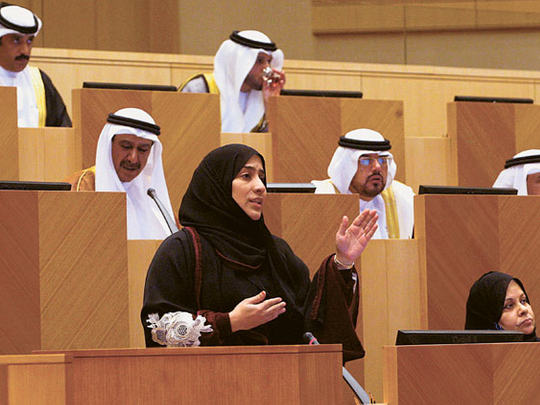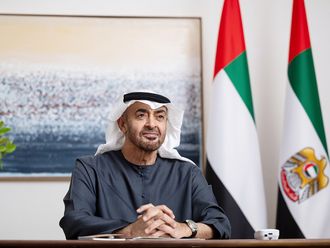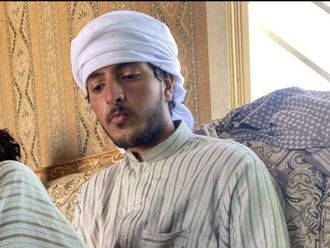
Abu Dhabi: The UAE's population strategy should be to make Emiratis the majority in the country, or up to 40 per cent, by 2021, members of the Federal National Council (FNC) told Gulf News yesterday.
They were speaking after Lieutenant General Shaikh Saif Bin Zayed Al Nahyan, Deputy Prime Minister and Minister of Interior, told them the government had set a percentage of Emiratis in the country by 2021.
"It would be for the good of the country that Emiratis account for the majority or up to 35 per cent of the UAE's population by 2021," said Dr Abdul Rahim Al Shahin, a representative from Ras Al Khaimah.
He suggested the population strategy should encourage the natural increase in the Emirati population while discouraging recruiting expatriate workers.
Single authority
Dr Al Shahin also suggested cutting the marginal and low-skilled labourers as well as centralising the issuance of visas into the hands of a single authority.
"Emiratis should make up to 80 per cent of the population within 20 to 25 years, a matter which requires a political decision," Dr Al Shahin said.
Shaikh Saif, who also heads the Federal Demographic Council, said in a letter presented to the council that a strategy to address the country's demographic imbalance was nearing completion and would be relayed to the House, but did not reveal the percentage of Emiratis the government targeted.
Dr Sultan Al Moadhen, a member from Fujairah, said the target should be making Emiratis 40 to 50 per cent of the population by 2021. "We should plan for making Emiratis account for up to 80 per cent of the population by 2030," he said. But the members broadly rejected naturalising a section of the population as a solution to the imbalance in the country's demographic make-up, arguing that naturalisation would create other cultural, political and social problems.
Minority in own country
Sultan Al Suwaidi, a member from Dubai who brought up the issue of population imbalance, asked that Shaikh Saif appear before the council to discuss the country's demographic profile with Emiratis a minority in their own country.
In a paper submitted to the Council, Al Suwaidi said there was a fear that the expatriate workforce living in the country for a long time would eventually demand political rights.
He said the annual cost of expatriate labour reached Dh55 billion in services, representing more than 20 per cent of the country's labour expenditure.
Al Suwaidi also blamed foreign workers for unemployment among citizens.
FNC members also argued that having more than 200 nationalities in the country had had a negative effect on preserving the local culture and national identity.
However, Dr Abdul Khaleq Abdullah, professor of political science at the UAE University in Al Ain, lowered the population target: "Keeping the present demographic makeup of Emiratis or 20 per cent of population in the country by 2021 would be an achievement."
He added that considering the present econ-omic growth rate, Emiratis would account for not more than 10 per cent of the population by 2021.
Dr Ebtisam Al Kitbi, professor of political science at the UAE University, agreed. She said radical measures — which included making changes to capital-intensive industries, and changing the pattern which created jobs for foreign unskilled workers — were needed if efforts to improve the demographic structure of the country were to succeed.
Emiratising key posts
Efforts to improve the UAE's demographic structure should focus on empowering Emiratis to hold the keys of the economy, through more jobs in the private sector and a bigger stake in private businesses, Lieutenant General Shaikh Saif Bin Zayed Al Nahyan, Deputy Prime Minister and Minister of Interior, said earlier this month.
Shaikh Saif explained the government was working to address the demographic imbalance in a way that strikes a balance between comprehensive development and interests of the homeland.
The council, set up in November 2009 to improve the demographic profile of the UAE, recently decided to present its strategy to the Cabinet and ministries concerned to incorporate it into the UAE's development strategy.
The Labour Ministry has also initiated demographic policies and initiatives designed to create more jobs for Emiratis and decrease dependence on foreign workers, especially in marginal and low-skilled jobs.
These measures were also designed to liberalise the labour market and ensure the optimal use of skilled and professional workers rather than replacing them with newcomers.
The Federal Demographic Council also co-ordinates with departments across the country to ensure a common policy for reaching solutions to demographic issues and for maintaining harmony between the sustainable development and demographic policies.












